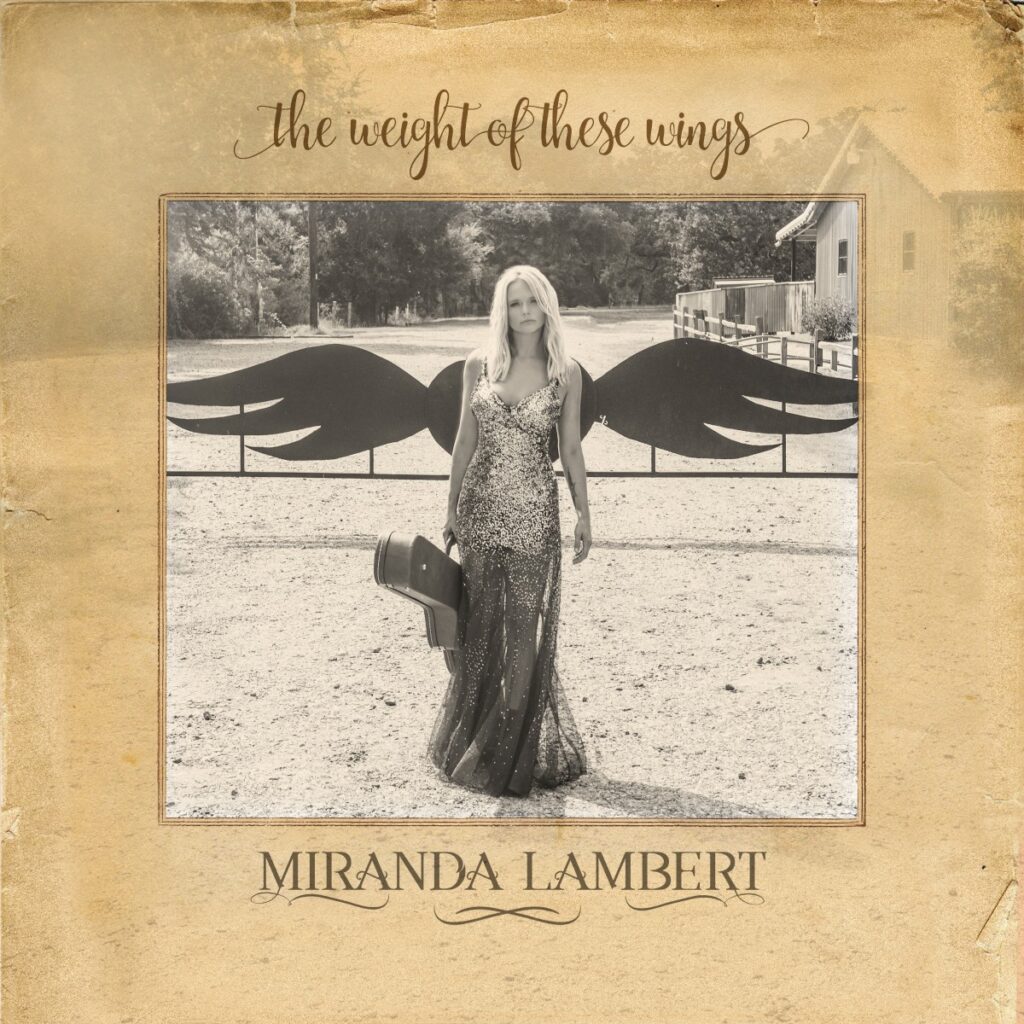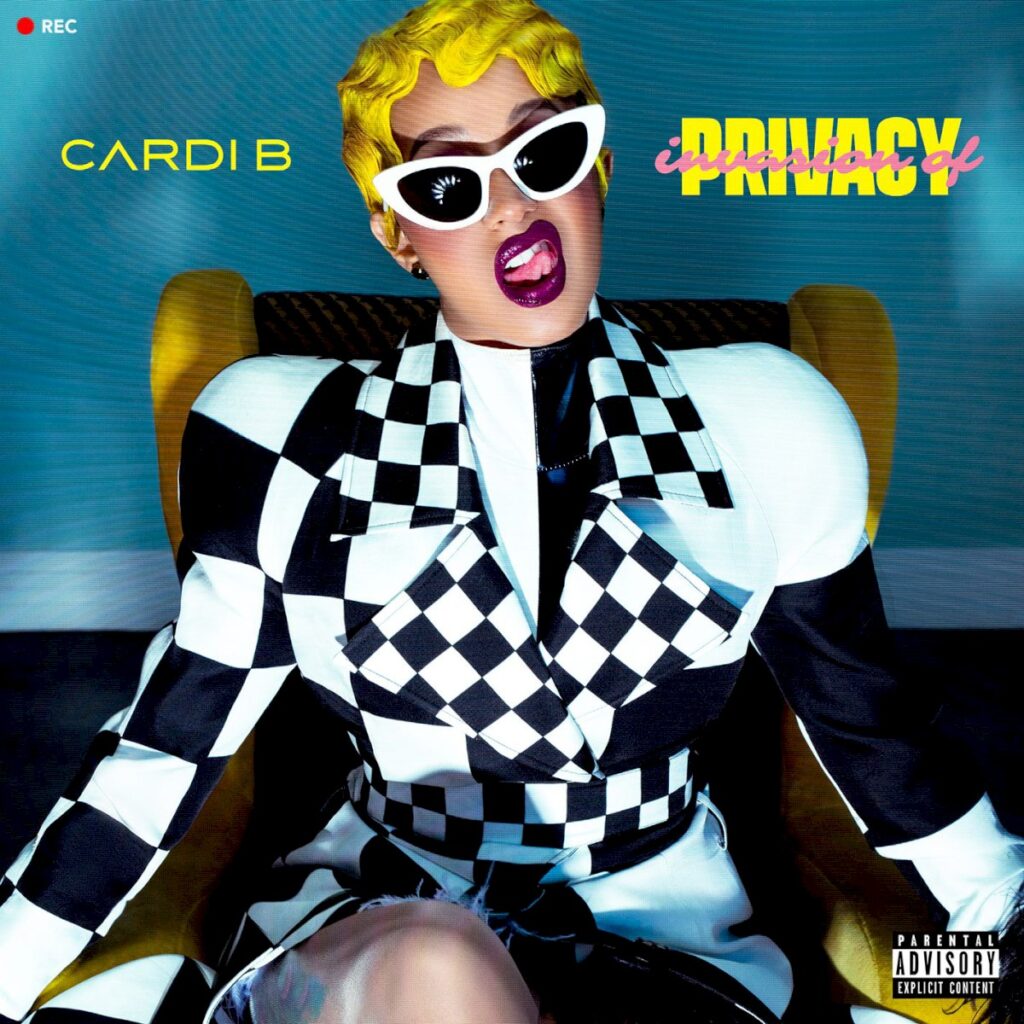70.
Robyn, ‘Honey,’ 2018

In the formative years of her career, Robyn developed a reputation as a pop icon who could blend personal vulnerabilities with dance-floor anthems. Honey diverges from this mold, revealing a softer, more introspective side of the artist. The central theme of the album is personal evolution through grief, loss, and reconnection. Robyn herself has described the album as moving “from grief and loss…into various stages of pleading and longing…to desire…to a headrush of fun.” The album’s opening track, Missing U, is a poignant tribute to her late friend and collaborator Christian Falk, blending sorrow with nostalgia. Robyn’s reflections on grief continue in tracks like Because It’s in the Music, where she laments a song she shares with an ex-love, encapsulating the painful permanence of certain memories. Robyn’s approach to songwriting in Honey evolves from her previous work which often left emotional resolutions open-ended. Here, the lyrics are more contemplative and measured, reflecting a mature understanding of her emotional journey. The composition of Honey marks a departure from the high-energy electro-pop for which Robyn is renowned. Embracing a more club-centric sound, the music on Honey is characterized by subtle, sensual rhythms and an emphasis on mood over structure. Robyn herself has explained that club music offers “no reward,” highlighting the process-focused nature of the genre. This approach is evident in tracks like Baby Forgive Me, which starts mid-thought and gradually builds into a brighter melody, shunning traditional pop structures in favor of a more fluid, experiential form. Robyn took a hands-on role in the production of Honey, introducing her own beats and textures. The songs’ sonic landscapes range from the “sensual throb” of Baby Forgive Me to the “playful ’90s house” vibe of Between the Lines. As the emotional center of Robyn’s musical universe shifts from heartbreak to a more nuanced understanding of love and loss, Honey represents both a continuation and a reinvention of her artistic vision. This album, in its quiet brilliance, invites listeners to join Robyn in her journey toward a softer, more redemptive place.
69.
Mitski, ‘Puberty 2,’ 2016

The title of Mitski Miyawaki’s fourth studio album, Puberty 2, sets the groundwork for an exploration of the turbulent transition from adolescence to adulthood. This aptly named project implies that the uncertainties and emotional upheavals once thought to be confined to teenage years often persist into one’s twenties. At its core, Puberty 2 is a strike against the happy/sad poles that govern our lives, highlighting Mitski’s nuanced approach to emotional storytelling. Mitski has pointed out that much of the album draws from her personal experiences of feeling like an outsider, a sentiment rooted in her multicultural background and the instability of having lived in numerous countries. This perspective is poignantly captured in tracks like Your Best American Girl, where she grapples with complex issues of identity and acceptance within the framework of a seemingly unattainable love. The lead single, driven by distorted guitars and emotion-laden vocals, finds her singing, “Your mother wouldn’t approve of how my mother raised me / But I do, I think I do.” Mitski’s lyrics in Puberty 2 navigate a vast emotional landscape with a sense of raw honesty and vulnerability. The album opens with Happy, which sets the tone for the lyrical journey. Here, happiness is anthropomorphized and characterized as a fleeting visitor who brings temporary delight before leaving behind a mess. This metaphorical approach continues throughout the album, as seen in tracks like I Bet on Losing Dogs and Fireworks, where Mitski delves into themes of unattainable love and internalized pain. Puberty 2 features a diverse array of musical styles incorporating elements ranging from second-wave emo to wistful dream pop, slow-simmering electronics, brusquely strummed folk-punk, surf guitar, and ’60s pop hooks. Tracks like Your Best American Girl channel ’90s alternative rock with a wall of distorted guitars, creating a nostalgic yet fresh sonic atmosphere. Further exemplifying the album’s compositional versatility is My Body’s Made of Crushed Little Stars. This steely punk anthem contrasts starkly with more subdued tracks like Thursday Girl, showcasing Mitski’s ability to convey a wide range of emotions and sonic textures within a single album.
Today, I will wear my white button-down
I’m tired of wanting more, I think I’m finally worn
For you have a way of promising things
And I’ve been a forest fire, I am a forest fireAnd I am the fire, and I am the forest
And I am a witness watching it
I stand in a valley watching it
And you are not there at all
68.
Arctic Monkeys, ‘AM,’ 2013

Arctic Monkeys’ fifth studio album, AM, delves into the gritty, nocturnal world of frustrated romance, sex, and loneliness. Alex Turner’s lyrical prowess shines through as he portrays an array of emotions and experiences embroiled in late-night escapades, murky relationships, and introspective solitude. The album’s tracks reflect the uncertainties and turmoil associated with modern love and lust with poignant clarity. For instance, tracks like R U Mine? encapsulate the transient and fleeting nature of relationships. Alex Turner, the band’s frontman, brings a distinct baritone vocal timbre that permeates the album, adding a layer of sophistication and allure to the evocative themes. His lyrical content often oscillates between swagger and vulnerability, painting vivid pictures of late-night loneliness and the yearning for connection. Do I Wanna Know? poses existential romantic questions laden with emotional turmoil and desire, cataloging the uncertainty of love and the search for answers. The song’s recurring riff and lyrical repetition underscore Turner’s internal conflict and longing. The album’s closing track, I Wanna Be Yours, provides a poetic and haunting resolution. It employs John Cooper Clarke’s poem, transforming it into a melancholic ballad that encapsulates the desire for deep, unconditional attachment amidst the album’s otherwise tumultuous themes. Arctic Monkeys took a novel approach to creating AM, differing significantly from their previous records. The album’s production emphasizes meticulously crafted grooves and a rich sound palette, featuring an array of new instruments including the Hohner Guitaret, vintage drum machines, and various keyboards like organ, celeste, and piano. AM is characterized by its hybrid genre influences, seamlessly weaving elements of hip-hop, R&B, and rock. The band’s experimentation with hip-hop influences is particularly noteworthy, marking their first engagement with this genre. Tracks like Why’d You Only Call Me When You’re High? infuse West Coast hip-hop bass lines with Turner’s troubadour-esque lyricism. Another standout aspect of the album is Jamie Cook’s intricate guitar dynamics, which range from delay-drenched riffs to high-gain solos. Tracks like One for the Road and Fireside highlight this blend of meandering arpeggios and solid rhythm backbones, illustrating the band’s evolving musical sophistication.
67.
Miranda Lambert, ‘The Weight of These Wings,’ 2016

I leave it all in ruins
‘Cause I don’t know what I’m doing
I’m hard on things that matter
Hold a heart so tight it shatters
So I stay away from things that break
Miranda Lambert’s sixth studio album, The Weight of These Wings, comes in the wake of her highly publicized divorce from fellow country superstar Blake Shelton and consists of two discs, titled “The Nerve” and “The Heart”. The Weight of These Wings is thematically nuanced and complex. Although the album arrives in the aftermath of Lambert’s divorce, it diverges from the expected trope of a “breakup album.” Instead, it offers a narrative centered on personal growth, self-discovery, and moving forward. Lambert’s lyrics often evoke deep emotions with striking clarity, teeming with metaphors and vivid storytelling. Disc one, “The Nerve,” delves into themes of rebellion and hedonistic escapism. Tracks like Highway Vagabond and Ugly Lights reflect Lambert’s flirtation with freedom and reckless abandon. The track Vice addresses the notion of indulgence and redemption, encapsulating the internal dualism Lambert grapples with throughout the album. The second disc, “The Heart,” is more introspective, focusing on vulnerability, emotional resilience, and the heart’s capacity to mend. Songs such as To Learn Her and Well-Rested resonate with old-school country sensibilities, drawing comparisons to music from the 1960s and 1970s. The song Tin Man draws parallels to the character from The Wizard of Oz, using the allegory of a heart made of tin to explore themes of emotional fortification and longing. Miranda Lambert’s vocal performance on The Weight of These Wings is both dynamic and subtle. She balances between whispery confessions and powerful declarations. For instance, her delivery on Highway Vagabond is detached yet captivating, while in You Wouldn’t Know Me, she displays a raw, emotional vulnerability. The Weight of These Wings traverses the spectrum of country, blending traditional sounds with more contemporary influences. While the album’s pacing is predominantly slow to mid-tempo, it is punctuated by moments of uptempo vigor. Tracks like Ugly Lights, with its punk-rock edge, stand in stark contrast to ballads like Pushin’ Time, highlighting Lambert’s versatility. The use of reverb, muted drum patterns, and Reagan-era U2 atmospherics on tracks like Runnin’ Just in Case showcases a deft blending of country with elements of rock and folk, ensuring that the sound remains fresh and engaging throughout the album’s 24 tracks.
66.
Cardi B, ‘Invasion of Privacy,’ 2018

Cardi B’s Invasion of Privacy is a landmark debut, showcasing her ability to transcend the “singles rapper” label and establish herself as a formidable album artist. The title of the album is a direct reflection of Cardi B’s experiences during the album’s creation. As she explained in an interview on The Breakfast Club, the title emerged from the overwhelming invasion of her personal life by the media and public scrutiny. This theme of intrusion and exposure is woven throughout the album, as Cardi B uses her music to reclaim her narrative and assert her identity. The album explores a range of themes, including empowerment, resilience, and vulnerability. Tracks like Get Up 10, Bodak Yellow, and I Do reflect Cardi’s relentless determination to triumph over adversities while showcasing her unapologetic personality. These themes blend bravado with vulnerability, often addressing personal and social issues like infidelity, self-worth, and the hustle for success. Get Up 10 sets the tone with its autobiographical narrative, where Cardi B recounts her rise from adversity with lines like, “Went from making tuna sandwiches to making the news.” In contrast, songs like Be Careful and Thru Your Phone delve into the complexities of relationships and trust, revealing a more introspective and vulnerable side of the artist. Invasion of Privacy is a diverse album that seamlessly blends various musical styles, including pop-rap, trap, and Latin influences. The composition is dynamic, with each track offering a distinct sonic experience. The album’s production is polished and sophisticated, achieving a balance that is “expensive, if safe,” allowing Cardi’s personality to shine without venturing too far into experimental territory. Featuring Bad Bunny and J Balvin, the standout track, I Like It samples Pete Rodriguez’s I Like It Like That and infuses it with a modern Latin trap twist. This track not only highlights Cardi B’s Latin roots but also demonstrates her ability to create cross-cultural hits. The album’s beats are robust and varied, ranging from hard-hitting trap anthems like Bartier Cardi to more melodic and introspective tracks like Ring featuring Kehlani.